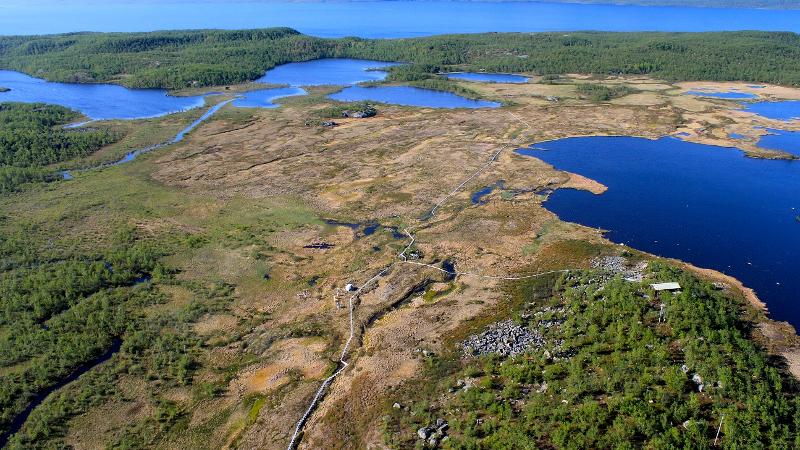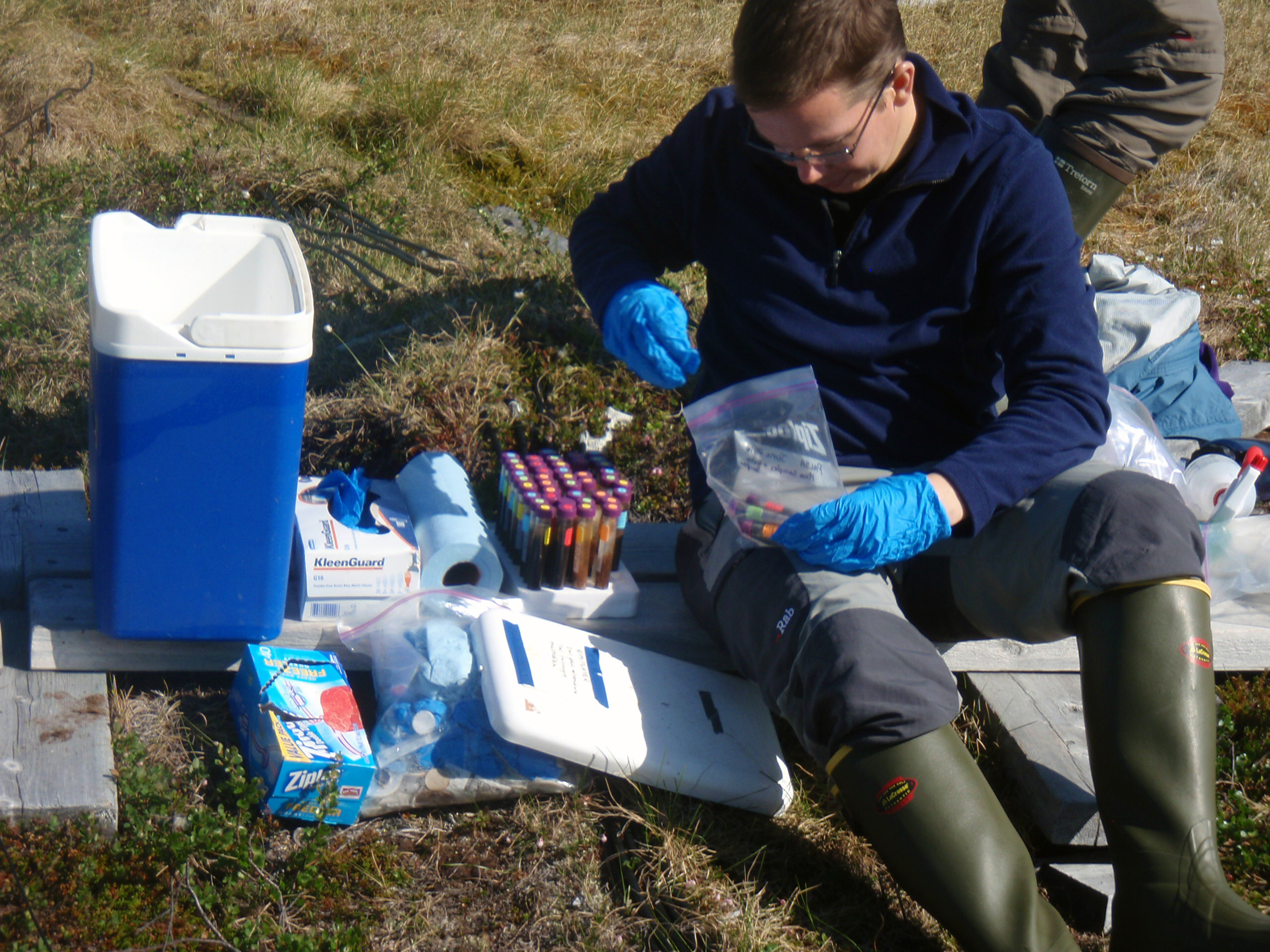
QUT is one of 14 universities from around the globe collectively awarded $US12.5 million by the US National Science Foundation to launch a new Biology Integration Institute which will focus on better understanding ecosystem and climate interactions.
Called EMERGE (EMergent Ecosystem Response to ChanGE), the institute will bring together an interdisciplinary team of 33 international scientists, including QUT Faculty of Health microbial ecologists and bioinformaticians Professor Gene Tyson and Dr Ben Woodcroft. QUT is the only Australian participant in the institute.
Professor Tyson said EMERGE would build on research that’s been conducted on the ecosystem of Stordalen Mire, a sub-Arctic peatland in northern Sweden where permafrost thaw due to rising global temperatures is driving changes in landscape, plants and microbes.
When permafrost soils thaw, carbon locked within them becomes exposed. Microbes break this down, releasing greenhouse gasses – methane and carbon dioxide. Due to the large amounts of carbon locked in the organic matter within permafrosts, there is concern about future global warming causing widespread thaw and releasing massive amounts of greenhouse gasses.
“We’ve been studying the microbial activity in the Stordalen Mire ecosystem for the past decade, and this will be the focus of EMERGE over the next five years,” said Professor Tyson, an Australian Research Council Future Fellow and Professor of Microbial Genomics in the QUT School of Biomedical Sciences Centre for Microbiome Research.
“We want to better understand how the microbes behave and contribute to producing greenhouse gasses as individual organisms down at the genetic level, how they assemble into communities and interact collectively, and how they evolve over time and in response to changing conditions.
“Inside microorganisms, including bacteria, is a genome, and so an individual gene in a microbe that is breaking down matter within the ecosystem can have a global greenhouse impact.
“The aim of EMERGE is to create a ‘genes-to-ecosystems-to-genes’ framework of what is happening to create models to help predict ecosystem response to climate change.”

The EMERGE institute will bring together scientific expertise inside and outside biology, including in ecology and evolution, organismal biology, team science, and modelling and computational science. It will also have a strong training, education and outreach component and will involve biologists at the postdoctoral, graduate and undergraduate levels.
EMERGE will be led by Ohio State University Associate Professor of Microbiology Virginia Rich and co-directed by University of New Hampshire Professor of Biogeochemistry Ruth Varner. Other collaborating universities in the US are the University of Arizona, Florida State University, Colorado State University at Fort Collins, Case Western Reserve University, University of California at Berkeley, Rochester Institute of Technology, Lawrence Berkeley National Laboratory, and Joint Genome Institute, and in Sweden, Lund University, Umea University and Stockholm University.
Main photo: aerial of Stordalen Mire by Scott Saleska
QUT Media contacts: Karen Milliner, 07 3138 1841 or k.milliner@qut.edu.au
After hours: Rose Trapnell, 0407 585 901 or media@qut.edu.au


